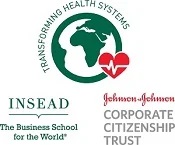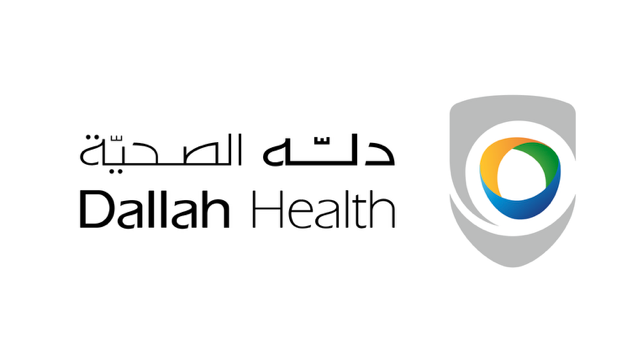INSEAD's contribution to the healthcare sector is strengthened by its portfolio of MBA and Executive Education courses. The goal in this domain is to support current and future leaders in global healthcare organisations to develop new approaches and to innovate healthcare delivery activities so as to create measurable and sustainable improvements for patients. We deliver the following MBA and and Executive Education courses focused on health across our three campuses in Europe, Asia and Middle East.
MBA

Master Strategist Day

Business as a Force for Good Practicum
Creating Value in Health
Pharmaceutical Marketing
Executive Education
-
Past Programmes
-
Middle East Health Leadership Program
The Middle East Health Leadership Programme (MEHLP), extended the successes of the previously taught European Health Leadership Programme (EHLP) to the INSEAD Abu Dhabi Campus for the first time from February 2008. For those of you interested in EHLP, we recommend that you consider MEHLP or IHT as well as STICH programmes (listed below). The MEHLP provides leadership, decision making, process excellence, quality management, and health care service innovation concepts to a select group of health leaders. The programme currently has a large alumni network consisting of leaders working in and around the Middle East.
Participant profile: Participants will be high-potential individuals with at least 4 to 10 years’ management experience. Successful candidates will be senior managers in health care organisations (excluding commercial health care suppliers) who have already demonstrated outstanding leadership qualities, who personally wish to advance and who are considered by their organisation as capable of occupying positions of increased responsibility in the future. Past participants come from a range of nationalities and backgrounds, including chief medical officers, heads of nursing, department heads, health care insurance providers and government policy makers. At minimum, a bachelor’s degree is required.
Innovating Health for Tomorrow
The Innovating Health for Tomorrow program (IHT), launched in 2012, is designed for senior level world leaders working in multi-stakeholder environments related to health care delivery and community wellness. The course, offered on France campus, aims to equip participants to be more innovative and to support those around them to be innovative with a goal of cultivating their passion for innovation and to help rethink how care and wellness are approached.
Participant profile: This programme is designed for a cross-section of professionals who can influence healthcare at a regional, national or local level. Most participants are expected to hold senior executive and/or entrepreneurial positions in organisations such as:
Public-sector providers of public, primary or acute care
Public-private partnerships in healthcare
NGOs focusing on healthcare (or community development where health plays a major role)
Private healthcare providers
Government healthcare insurance agencies, assessment departments or policy units
Academic clinicians
Professional medical or patient advocacy organisationsParticipants not suitable for the programme include those who work for: pharmaceutical or medical device companies; consulting firms in the health sector; and private, for-profit health insurance companies.Participants will typically have 5 to 10 years of management experience or more. They should already have demonstrated leadership and innovation qualities. Their organisations should also consider them capable of holding positions of increased responsibility in the future. They must have strong command of the English language, which is the language of instruction for all pedagogical materials. Last but not least, participants must commit to participating in both modules, contributing constructively during modules, innovating between modules and sharing updates with other participants in a spirit of open-source innovation.
Strategic Innovation for Community Health
The Strategic Innovation for Community Health program (STICH), held in Abu Dhabi since 2011, is designed for senior health care professionals working in areas of chronic diseases and family medicine across the Middle East. STICH offers insights and thinking about innovation as a discipline, the innovation of health care, prevention services, the effective implementation and adaptation of strategy and new approaches to "systems thinking".
Participant profile: Strategic Innovation for Community Health (STICH) is designed for leaders in primary care, public health or chronic disease care. Successful candidates will have been trained as doctors, nurses, health educators or other health professionals but have subsequently become senior or high-potential managers in health care delivery organisations in the Middle East. Participants typically:
Are senior or high-potential managers in healthcare services
Have 3-8 years of management experience
Are recognised to be capable of occupying positions of increased responsibility, particularly with respect to innovation.Participants typically hold titles such as Public Health Strategy Development Officer; Director of Nursing; Director of Primary Care; Senior Regional Officer of Public Health; Senior Specialist of Family Medicine; District Director or Director, Primary Care.
Entrepreneurs in Clinical Academia
Entrepreneurs in Clinical Academia (ECA) is an initiative from the Federation of Clinical Immunology Societies (FOCIS) offering medical academics in Europe the chance to discover more about the drug development process and how to get the most out of research. It is supported by Celgene and delivered by INSEAD.
-
Customised Programmes
-
We leverage our business expertise in health to design custom programmes aimed at specific needs of organisations such as:
- Pharmaceutical, medical device and other R&D firms
- Healthcare delivery firms across private and public sectors
- Government healthcare authorities
Recent example of INSEAD partnerships include:

















